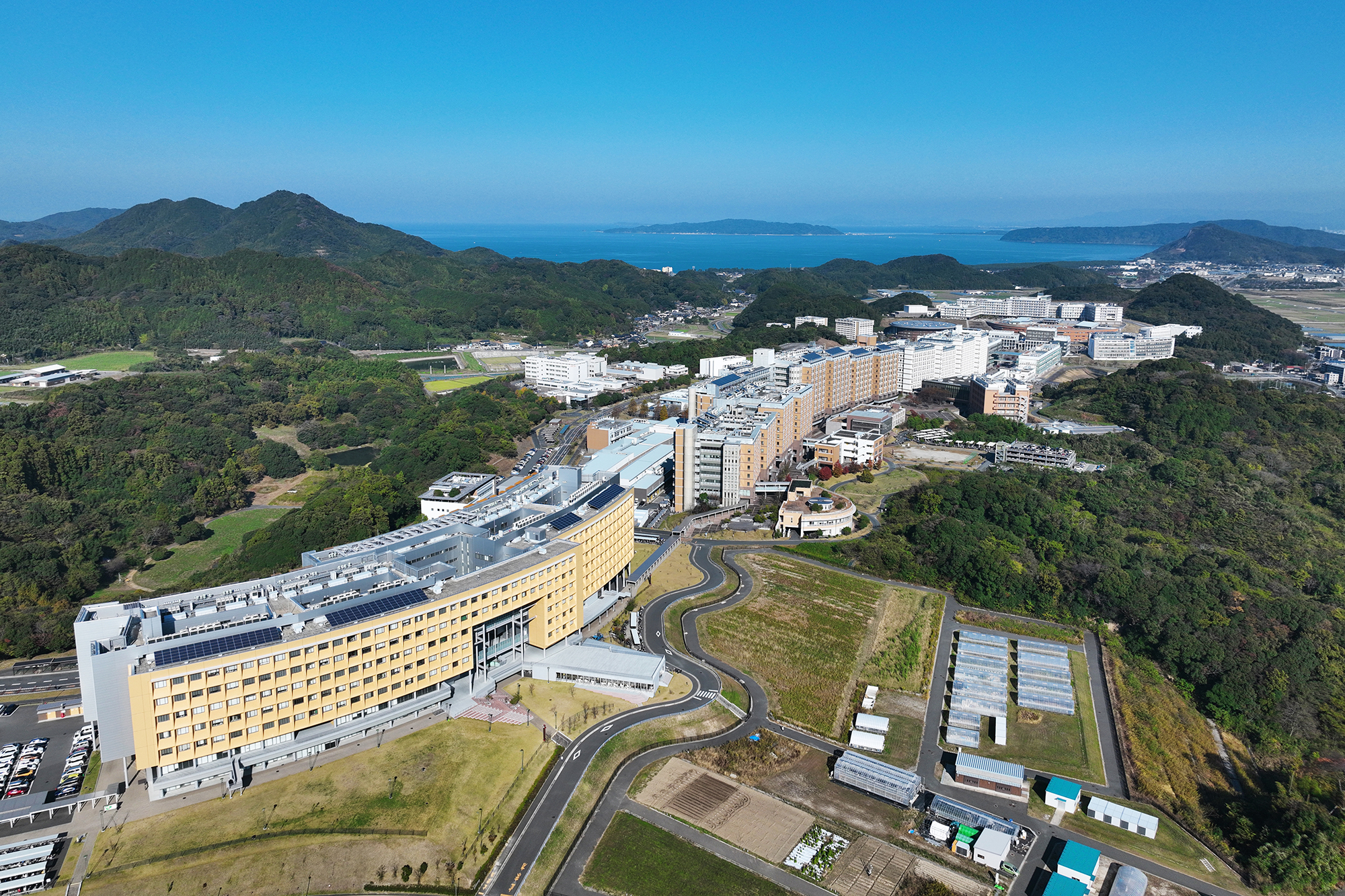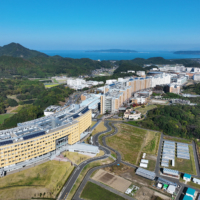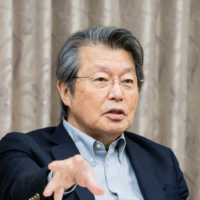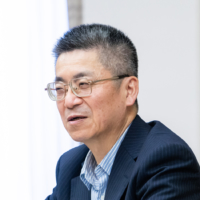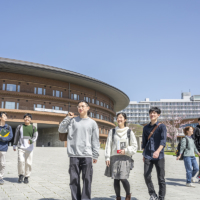Kyushu University’s effort in training human resources as well as conducting research and development in the field of semiconductors transcends academic boundaries and national borders.
The Japan Times interviewed President Tatsuro Ishibashi and Senior Vice President and Dean of the Institute for Advanced Study Masaharu Shiratani about the opportunities the university offers both students and the world of academia to accelerate innovations in microchip technologies.
Kyushu University’s Education Center for Semiconductors and Value Creation, established in June, carries out research aimed at improving the performance of semiconductors and fosters talent that can create new value in this field. The center intends to train three different categories of people who can contribute to society through the development and use of these technologies from three standpoints.
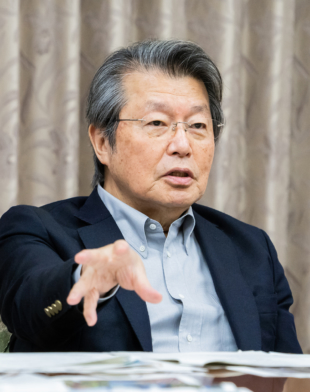
“The three types of human resources are those who are specialists in the materials, design and manufacturing of semiconductors and integrated circuits, those who understand the semiconductors and integrated circuits required for social change, and those who can reflect this in the design and manufacture of future products,” Ishibashi explained.
Shiratani noted that the conventional university education in Japan has taught students how to make chips and research these technologies from an engineering perspective.
“But what today’s society expects from academia is to train people who can create new value and services using semiconductors in addition to fostering technological experts. The center aims to do exactly that,” he said.
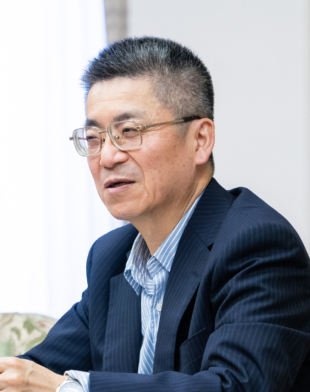
In other words, Japan’s semiconductor industry lacks people with varied backgrounds, capabilities and expertise in other fields. “Such talents will be able to envisage how best to use chips, for example, in developing new businesses related to artificial intelligence and contribute to improving society,” Shiratani said.
Thus, the center encourages humanities and social science majors as well as students from other universities and working adults to enroll. The center currently offers five undergraduate and six graduate classes. One class is attended by about 60 Kyushu U students and twice as many from other universities, on average. The working adults who participate include businesspeople, public officials and bankers who are facing a growing need for financing in the semiconductor sector.
The center also offers internship opportunities for students to gain hands-on experience that will prepare them for a career in the chip industry. In addition to internship programs provided by companies such as Taiwan Semiconductor Manufacturing Co., Micron Technology Inc. and Tokyo Electron Ltd., some students participate in a summer internship program at Rochester Institute of Technology in the United States, one of the world’s leading universities in this field.
“Internship programs offered by Japanese companies are normally short-term but many of the programs we offer through the partnerships with companies and academia are long-term, lasting more than a month. This helps with the acquisition of practical skills. There is also a program exclusively for female students to promote diversity in the chip industry,” Shiratani said.
The partnership agreement signed between Kyushu U and TSMC in April covers much more than human resources development. It promises a broad collaboration extending to scholarships and special lectures, as well as joint research.
Kyushu University has also been promoting partnerships with universities in Japan and abroad. “Kyushu Okinawa Open University, composed of 11 national universities in the Kyushu and Okinawa regions, was launched in March 2023 to cooperate on improving the research skills of researchers and students, sharing facilities and equipment and so on,” Ishibashi said.
KOOU signed an agreement in April with the University Academic Alliance in Taiwan, a platform of 12 universities, to promote international collaboration in fields including engineering, life sciences, humanities and social sciences.
One field in which these partnerships are expected to create positive effects is semiconductors.
“There are also further collaboration possibilities with individual universities within the networks. For example, our university and National Yang Ming Chiao Tung University in Taiwan, one of the universities that belong to the UAAT, signed an agreement in June to establish a joint laboratory in both campuses and have already started the exchange of human resources and joint research,” Ishibashi said.
Shiratani explained that today’s semiconductor industry cannot depend on or be dominated by just one country. Even major players in the market are not entirely self-sustainable because they need to procure materials and equipment from other countries to make their technologies work. “It makes sense for Japan’s human resources to build relationships abroad for future potential partnership,” he said.
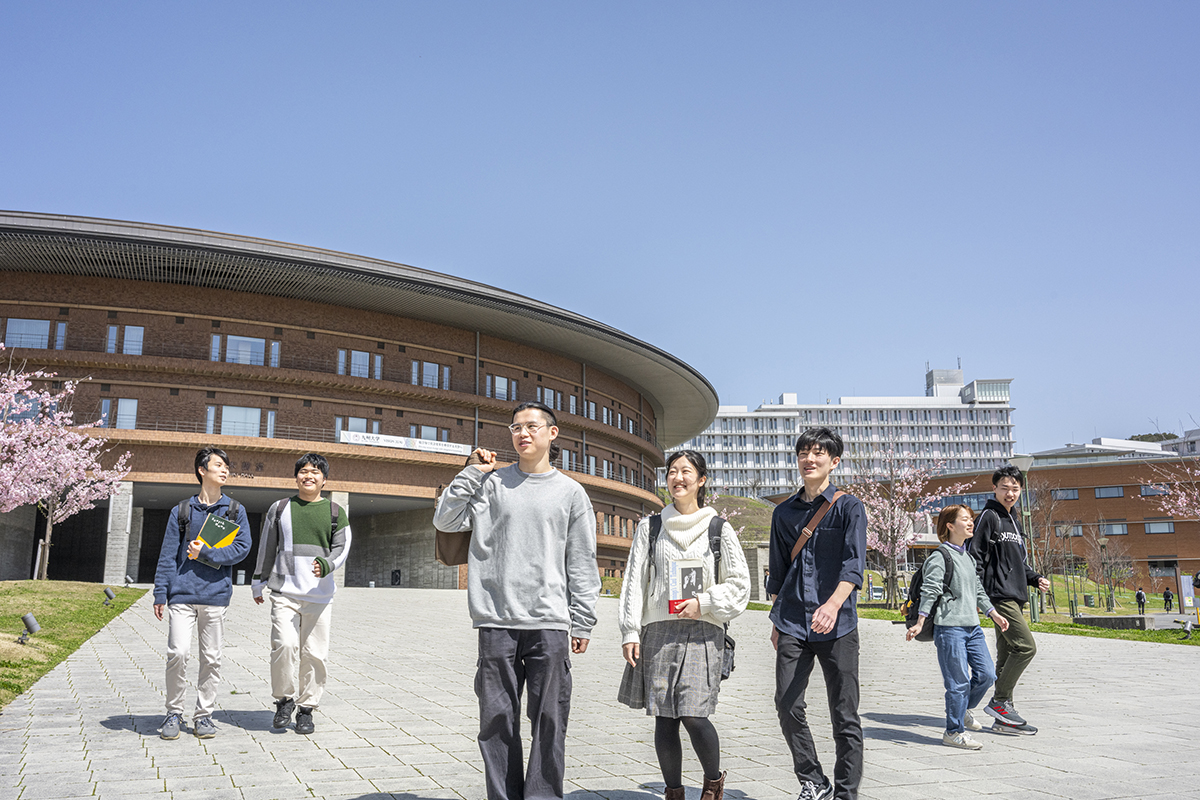
Kyushu University is also strengthening ties with the industry by addressing the urgent need for the extreme ultraviolet light irradiation and analysis services that are indispensable for advanced semiconductor manufacturing and the development of new materials. EUV Photon, a company funded 100% by the university, was established in July to serve this purpose.
“Japan is still strong in materials, holding approximately 50% of the market share for semiconductor materials, including a 90% share of photoresist. But Japanese companies rely on a research body in Europe for testing, which is mandatory prior to sales, which incurs the risk of technology outflows, expensive testing fees, and potential delays due to the high demands of testing,” Shiratani explained.
Having domestic testing capability will greatly contribute to the security, competitiveness and speed of Japan-made technologies and products. However, it is not just about owning a testing facility. The data generated by the facility needs to be analyzed and evaluated with a high degree of expertise — something that the abundant talent pool of Kyushu University’s faculty boasts.
Shiratani is confident that the semiconductor industry will continue growing at a high rate.
“Semiconductors are at the heart of new technologies that have brought about social change, such as smartphones and generative AI,” Shiratani said, highlighting that semiconductors that used to be considered merely a component of electronic products have acquired a value that now endows humanity with new cultures and civilizations.
“We hope that more and more talented youths in Japan will participate in this field and make an impact on the world. That way, we can shape the new era when Japan can be the creator of new values and systems of society to share with the rest of the world,” Shiratani said.
This page is sponsored by Kyushu University.
Kyushu University
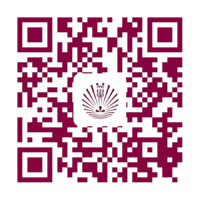
Address: 744 Motooka Nishi-ku, Fukuoka 819-0395
Phone: +81-92-802-2443
E-mail: [email protected]
URL: https://www.kyushu-u.ac.jp/en/



